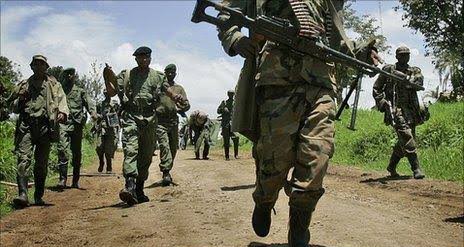
The World Health Organisation (WHO) says increased violence, natural disasters and disease outbreaks have fueled a deteriorating health system situation in the eastern part of the Democratic Republic of Congo (DRC).
Speaking from Kinshasa, Jorge Castilla, WHO’s senior emergency officer, told journalists on Friday in Geneva there had been a major increase in displacement in that part of the country.
Mr Castilla said there had been a major increase in displacement due to ongoing violence fuelled by armed groups, leaving around 7.4 million in need of health assistance.
Since March 2022, almost three million people have been forced from their homes in the eastern part of the country, in North Kivu, South Kivu and Ituri provinces.
“In the Goma area, when they move, also diseases move with them,” said Mr Castilla, who said cholera was prevalent with 25,000 cases.
DR Congo’s health system is under huge pressure due to overlapping outbreaks of COVID-19, measles, polio, and monkeypox.
Yellow fever, cholera and malaria are on the rise due to recurrent natural disasters and lack of access to safe water and sanitation for those on the move, WHO said.
Agency data shows that since mid-March, the DRC has been experiencing an average of 1,000 cholera cases per week.
As of 12 June, 24,562 cases and 156 deaths have been reported.
According to the official, a measles vaccination campaign is planned for the coming days.
The two provinces of North Kivu and South Kivu alone account for 82 per cent of the more than 136,000 measles cases recorded this year, including 2,000 deaths.
In addition to the rampant insecurity, flooding killed and injured hundreds of people earlier this year.
It also affected 36 health facilities in North Kivu, South Kivu, Kasai and Tshopo provinces, further increasing health needs.
Attacks by armed groups on health facilities have also impacted the ability to provide healthcare.
Hunger and malnutrition are growing, the WHO expert also said.
He said this had forced some of the displaced to return to areas of origin sporadically to survive, exposing them to further violence, mental health shocks and psychosocial strain.
Acute malnutrition is severely affecting children under the age of five, pregnant women and lactating mothers.
Of the $174 million required to provide urgent health assistance, only $23 million (13 per cent) has been mobilised so far, WHO said.
(NAN)


